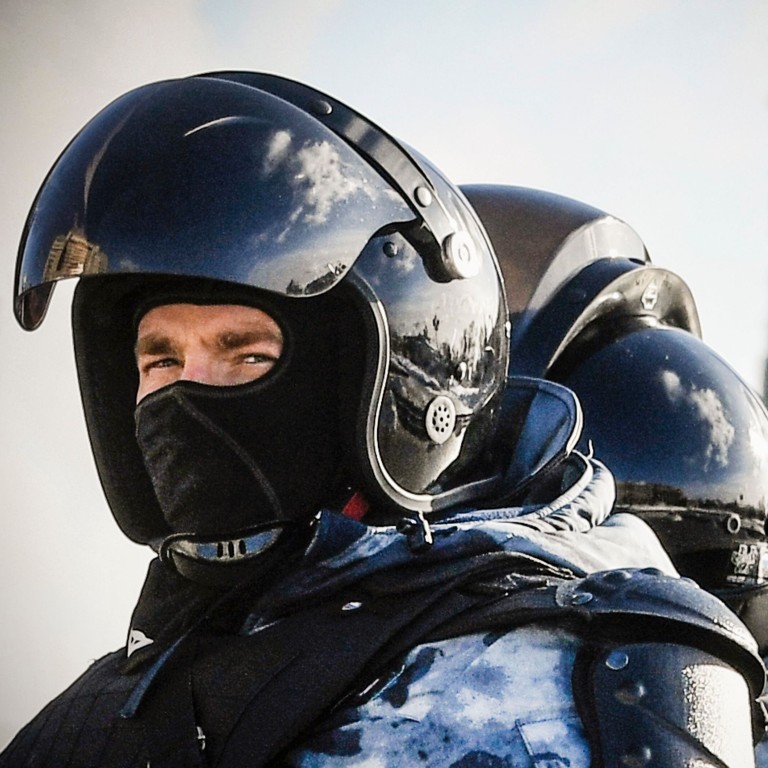
Navalny protests: crackdown in Russia intensifies with ‘10,000 arrests’
- Thousands detained within the past month while protesting the arrest of poisoned opposition leader Alexei Navalny
- Activists and human rights advocates express alarm over new laws limiting civic expression
Multiple rallies were organised in recent weeks, with up to hundreds of thousands defying cold weather and an ongoing pandemic to voice their discontent. According to local human rights watchdog OVD-Info, an estimated 10,000 were arrested nationwide over the course of two weekend rallies, the highest number of protest-related detentions made since Putin became president in 2000.
Activists say police have acted more aggressively in the Kremlin’s crackdown on demonstrations.
“The police officers did not disclose their names or tell us our rights – they also rejected many requests to speak to a lawyer. We were not given food,” said Ivan Gutorov, a detained activist who works with informal education in Saint Petersburg. “It is worrying how aggressively the police disperse peaceful rallies. The level of acceptable aggression has risen sharply.”
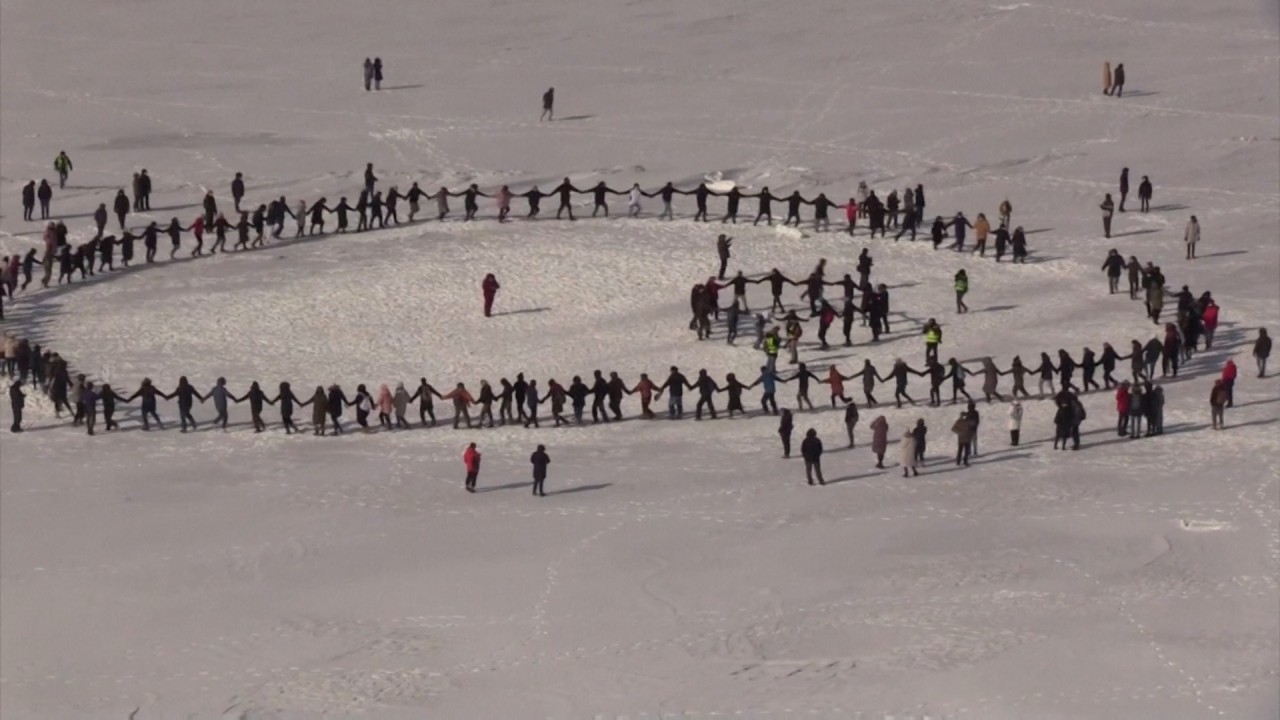
02:58
Russian police detains thousands of Navalny supporters during protests from Moscow to Vladivostok
This aggression is underlined by new pieces of legislation pushed through the Russian parliament in late December, many of which curtail freedom of assembly. Single-person picket protests, a common loophole allowing Russians to avoid penalties for taking part in unauthorised mass gatherings, are to be criminalised.
Protests will not be allowed outside law enforcement buildings, and blocking a street can be punished with time in prison. Rally organisers will be unable to accept funding from specific NGOs or from abroad and may additionally face two to four years in prison for “inciting unrest”.
The dark history of Novichok, deadly Soviet-designed poison
“The state demonstrates a clear intolerance to protest actions,” said lawyer Aleksandr Peredruk, who specialises in defending participants in peaceful assemblies. “Unfortunately, in recent years, the result of any street protest is the same: hundreds of detained and arrested citizens.”
“Over the past few weeks, large cities have been overcrowded with police,” Gutorov said. “Police vans, riot police, blocked streets – it seems like the city belongs to security forces.”
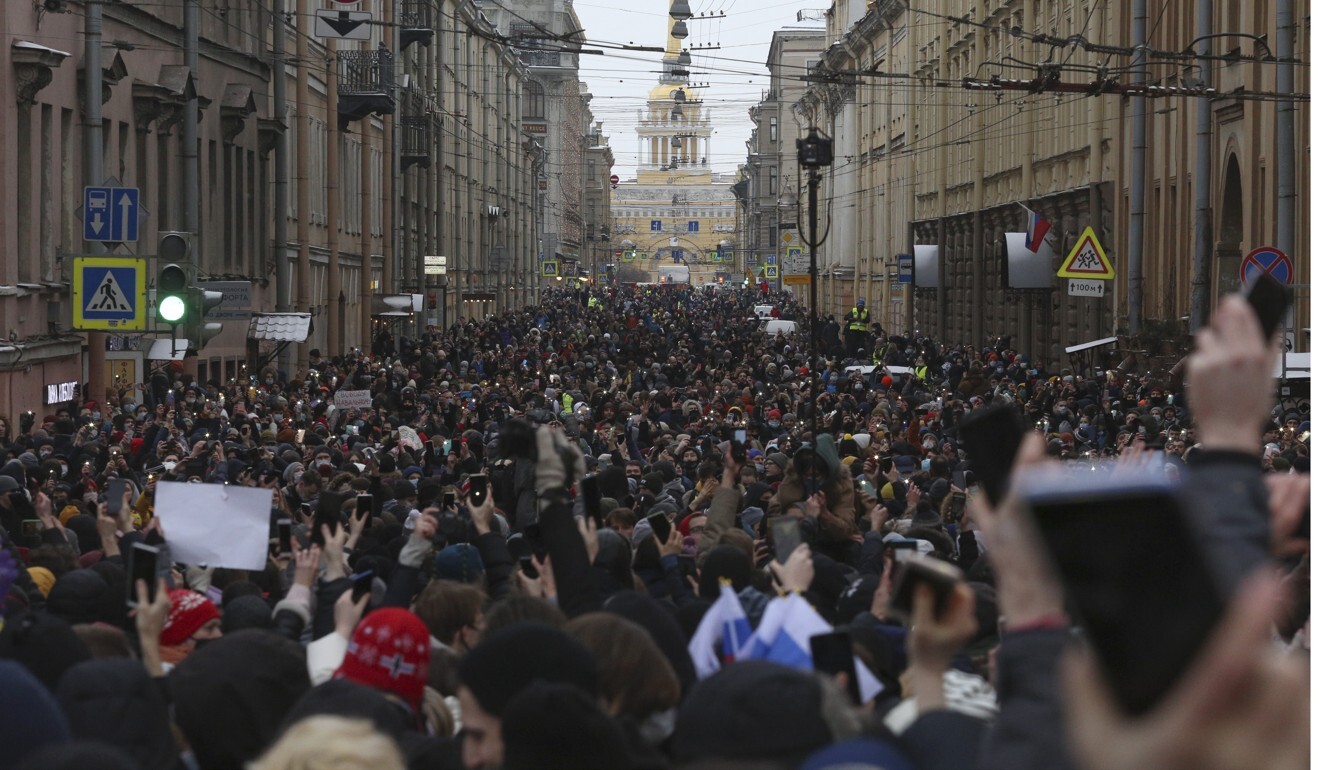
Media outlets and social media personalities are also affected by new regulations. Bloggers and contributors to opposition-themed Telegram channels risk facing up to two years in prison under recent libel laws. The disclosure of the personal information of security service personnel will also be illegal, a move inspired by the Bellingcat investigation into the FSB officers who allegedly poisoned Navalny last August.
US tech giants like Facebook and Twitter face threats over being blocked for themselves blocking state-related “important information” or for spreading information that contradicts official narratives concerning sanctions.
Alexei Navalny’s wife among thousands arrested in protests across Russia
Chinese-owned TikTok also may face fines of up to US$53,000 for not removing content made by young Navalny supporters, which Russian media watchdog Roskomnadzor has equated to encouraging “minors to act illegally”.
Local organisations face additional barriers if they are deemed to be “foreign agents”. The label requires NGOs and media outlets to disclose this status whenever they publish information. It also demands they comply with additional legal, organisation and financial restrictions.
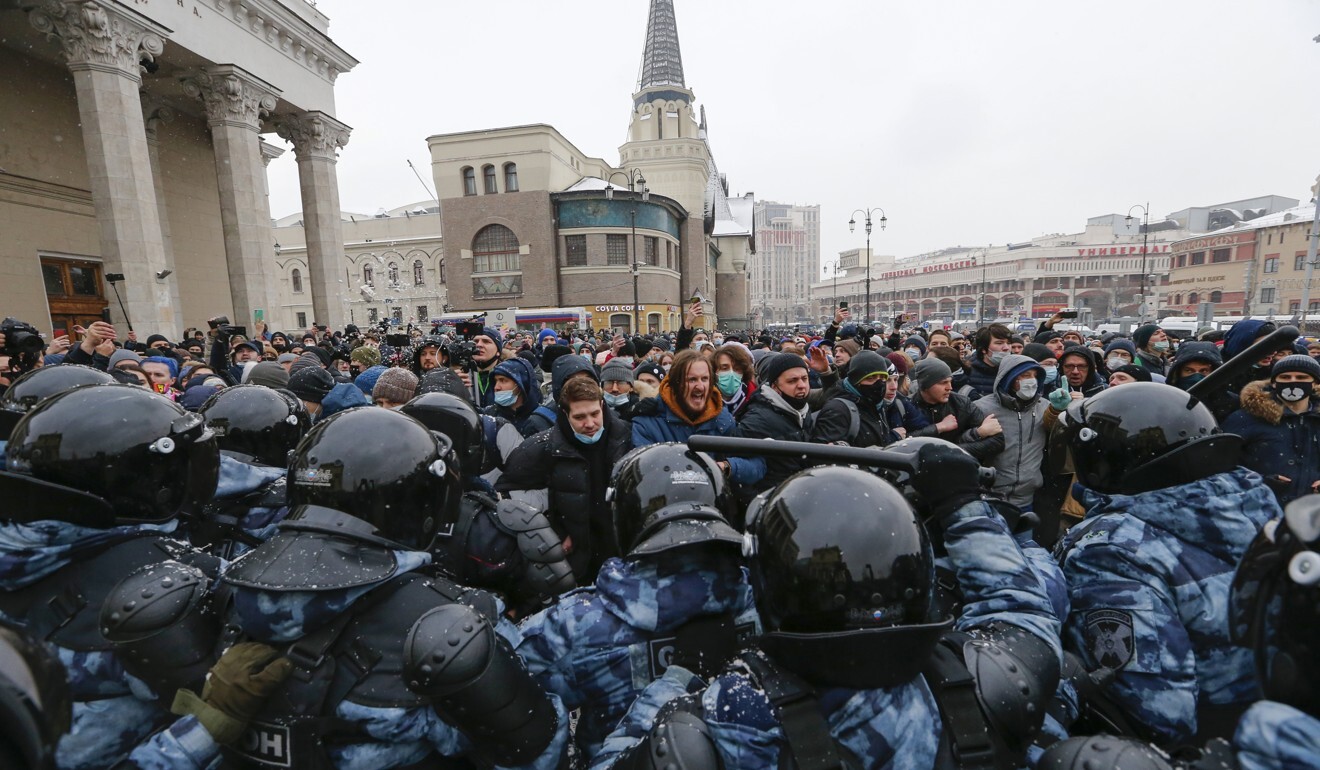
Last December, the law was expanded to allow for individuals to be branded as foreign agents if they “engage in political activities” and purportedly receive funding from abroad.
Dmitry Makarov, council member of the Moscow Helsinki Group human rights organisation, claimed that these new bills will be used to further target people. “They are attempts to regulate awareness-raising and educational initiatives, among other activities,” he said.
Alexei Navalny decries slander trial, chides judge
“Groups dealing with women’s rights have recently, for some reason, received special attention,” said Peredruk. “This is especially the case for those engaged in the prevention of domestic violence.”
One of the five individuals to be labelled as foreign agents in December was women’s rights activist Darya Apakhonchich, who believes that the increased restrictions on civic activism is accompanied by a broader “conservative turn” in society at large. “Feminist activism has long managed to remain outside the field of state control,” she said. “But the authorities are changing their relatively free course to one of greater control of culture, activism and even thought.”
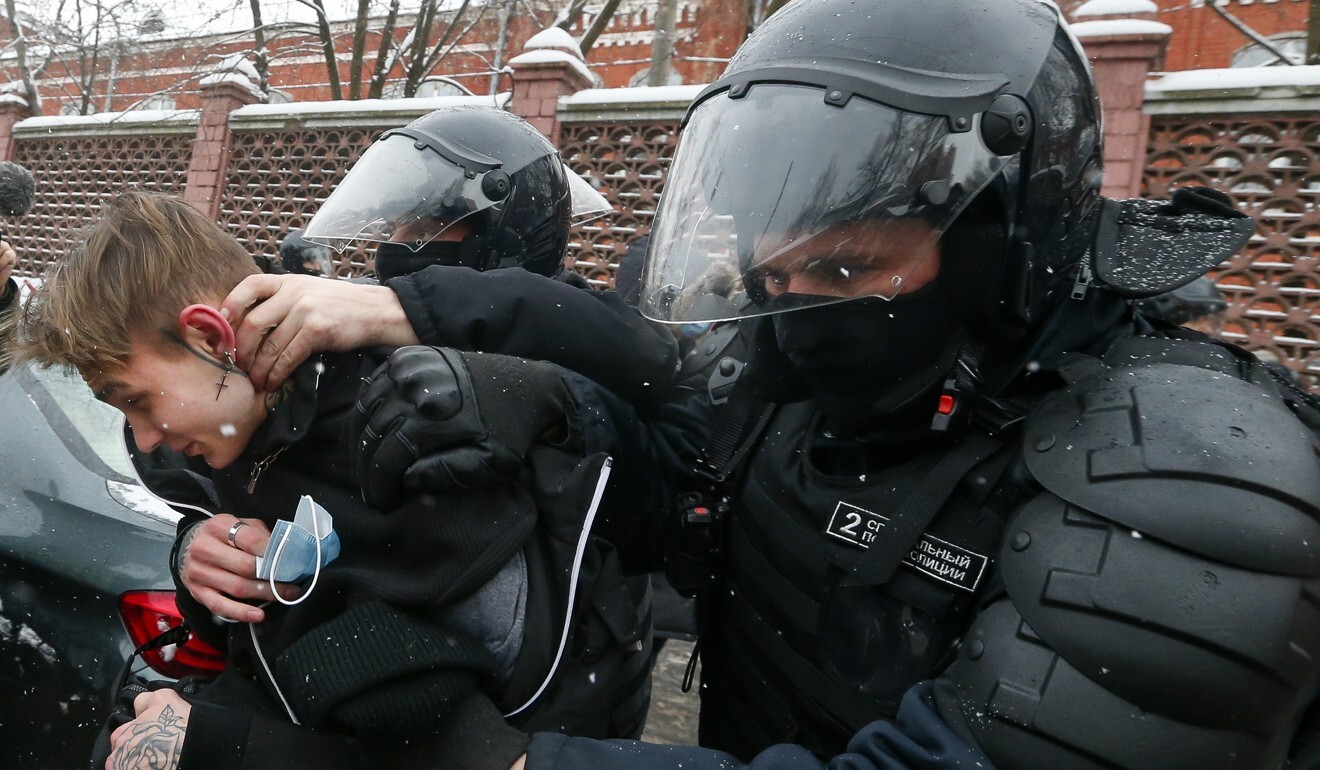
Before Navalny’s arrest, one of Russia’s most famous political prisoners was feminist Yulia Tsvetkova, who is currently awaiting trial for “the production and dissemination of pornographic materials” in connection to her gender-themed theatre projects and body-positive art. If convicted, she could face six years because of her art. International organisations like Amnesty International have decried the case as politically motivated and “absurd”.
The increased pushback against civil society has activists and human rights advocates looking to recent events for answers. “Last year’s so-called ‘constitutional reform’ contributed to the ongoing process of erosion of the rule of law,” said Makarov, referring to a nationwide referendum which consolidated presidential power in 2020.
Russia ready to break ties with EU if crippling sanctions imposed, Lavrov warns
“After the reforms, police violence and repression intensified and we saw a huge number of restrictive laws adopted,” Apakhonchich said. “Last summer we also saw large protests in Belarus that engulfed the entire country. The Russian government is perhaps afraid of a similar development of events and therefore it uses various means to suppress the activity of protesters in advance.”
While Russia has yet to see a protest movement as large as that in Belarus, local protesters have adopted some strategies from the neighbouring country. This includes two initiatives that took place on February 14: residential courtyard “heart protests” made using smartphones and cameras as well as women-led human chains.
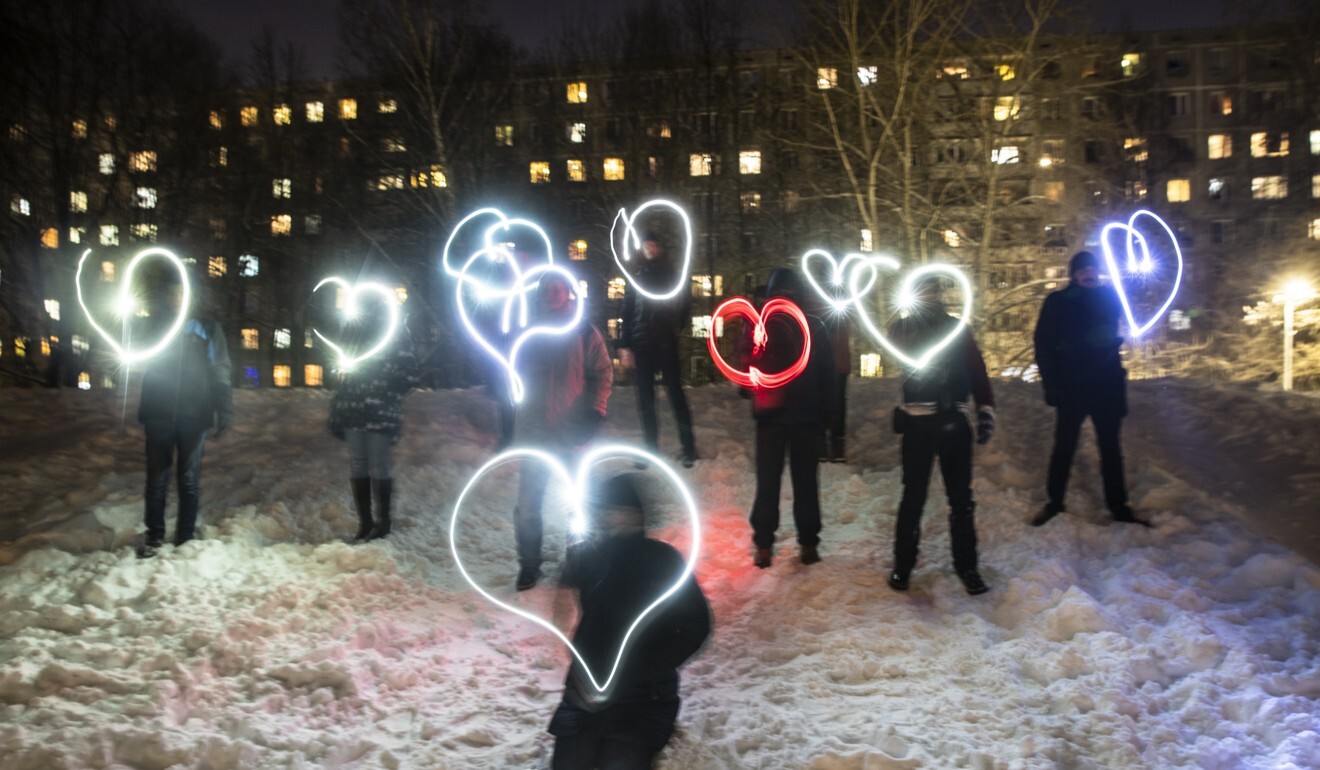
Smaller protests like these may be the norm for the rest of the winter, as Navalny’s team has declared they will be shifting focus away from mass protests and towards preparing for campaigns aimed at electing more independent representatives to the Russian parliament this fall. Various opposition coalitions have found increased success across the country using “smart voting” tools that direct interested voters to independent candidates most likely to win seats over Kremlin-backed favourites.
Strategic voting strategies are not the only tool that opposition figures still have at their disposal – online independent media outlets like TV Rain, Mediazona and OVD-Info have seen a surge in subscriptions this past month in what’s been called the “Navalny effect”.
Activists and human rights advocates have also indicated a cautious optimism that increased participation in the rallies may signal fatigue with government policy.
“The protests brought in a new wave of participants, and an even larger audience of interested onlookers,” Makarov said. “They are learning, communicating and abandoning former stereotypes and fears.”
Whether this will translate to increased participation in future protests is still unknown, but some activists interpret the crackdown as evidence that their efforts are indeed being noticed.
“It seems that someone’s scared up top,” Gutorov said.
